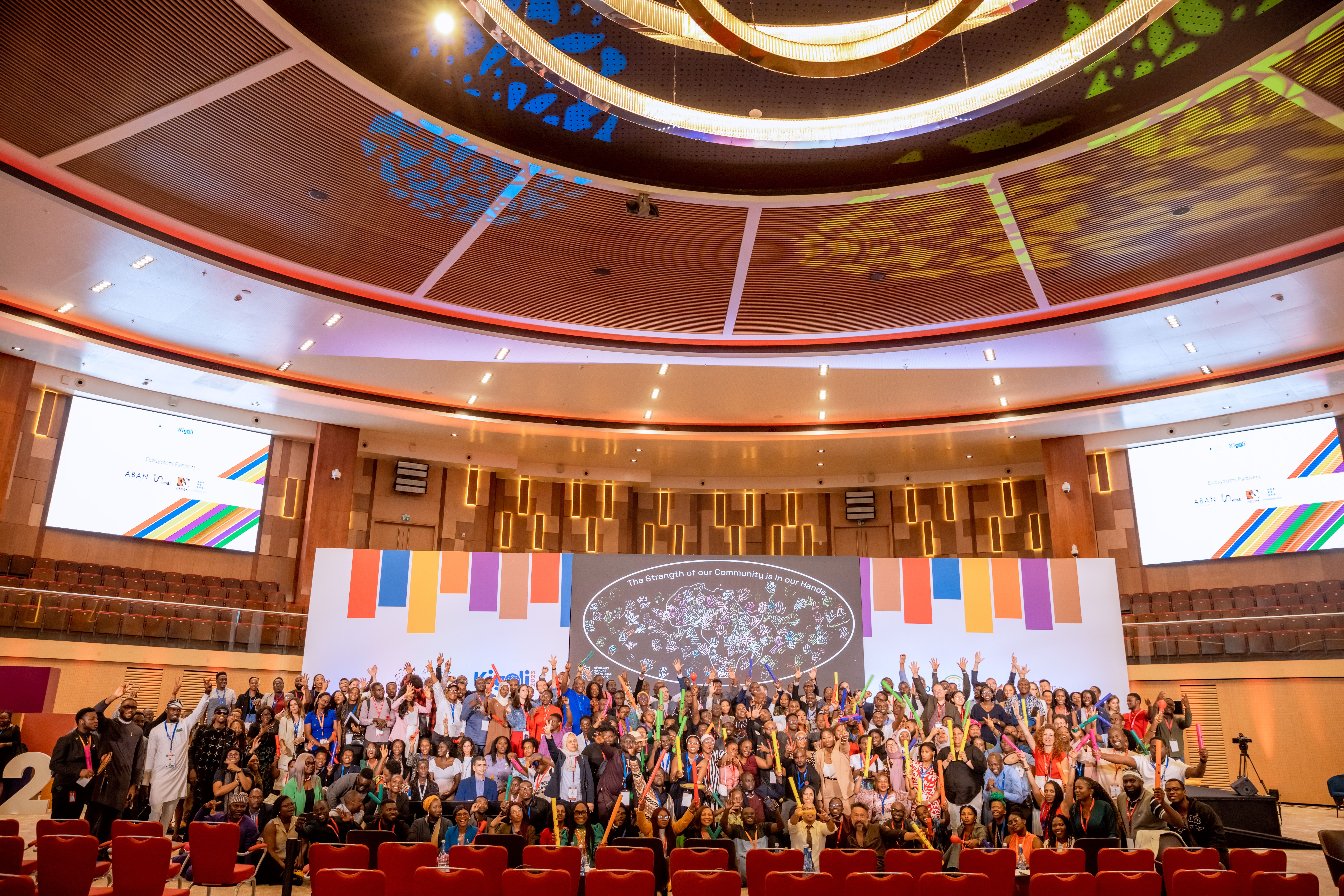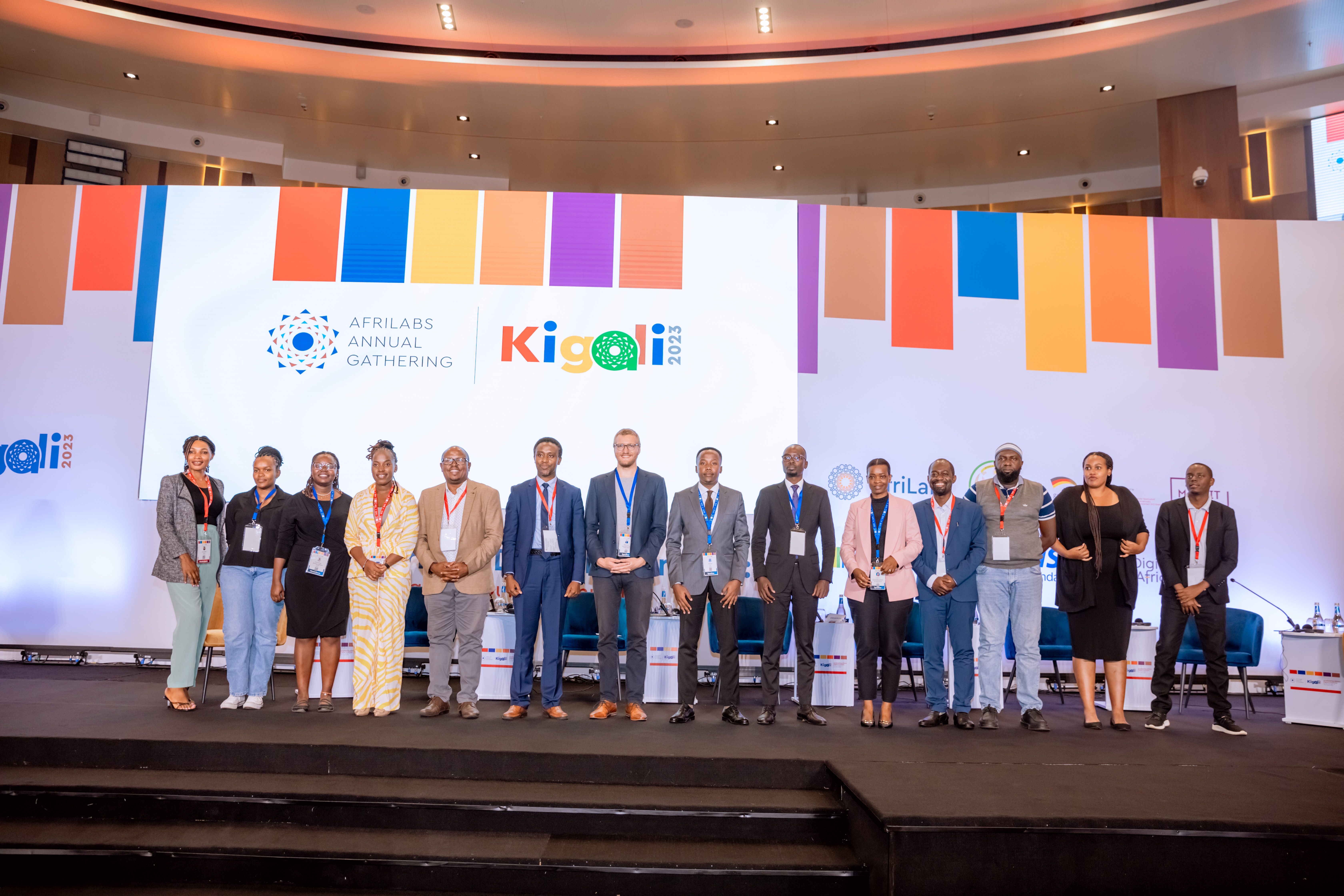In early October, the African Technology Innovation Hubs Initiative (AfriLabs) hosted dialogues and networking series in Kigali, Rwanda, at the transformative AfriLabs Annual Gathering 2023, under the theme “Accelerating Africa’s Digital Economy: by the Strength of Our Community”.
The gathering witnessed key thought leaders, policymakers, investors, and innovation ecosystem stakeholders and served as a keystone for Africa's technological and entrepreneurial growth. The Digital Skills for an Innovative East African Industry (dSkills@EA) project organised an enriching dialogue with experts who brought out their insights on the challenges and opportunities of East Africa's growing innovation landscape, ensuring that the discourse was channeled towards actionable outcomes. The discussions included immense contributions from various panel sessions, including climate adaptation, policy and data, gender inclusion, investments, creative industry, and technology.
Dr Jonathan Mbwambo, Regional Project Coordinator for the East and Southern Africa Higher Education Centres of Excellence (ACEII) Project at the Inter University Council for East Africa (IUCEA), presented on the evolving dynamics between university curricula and market needs. "The labour market is moving faster than our universities in delivering necessary skills," he noted. The sentiment was an urgent call for academia to infuse a sense of lifelong learning into its systems. “Preparing students for the job market is not just about equipping them with theoretical knowledge anymore, it is about fostering adaptability, instilling curiosity, and the tenacity for continuous learning in an ever-evolving job landscape,” he said. He echoed the active role the innovation hubs need to play in challenging the status quo and providing a space for technical assistance and capacity building for universities.
Contributing to the discussion, Bertin Niyigaba, Executive Director of African Institute of Intellectual Property, Innovation and Technology Transfer (AIIPITT), presented a case for the indispensable role of hubs in supporting budding innovators. Highlighting the often-overlooked challenge of aligning innovations with tangible community needs, he stated, “Hubs are in a good position to influence and fuel innovation ecosystem collaboration.” He added that universities have a pivotal role to play in this landscape. By stepping in as technology transfer centres, hubs guide young minds in grasping the significance of intellectual property, its nuances, and potential commercial applications.
From opportunities, the narrative shifted to outlining the bottlenecks and challenges in the innovation landscape as Dr. Judith Leo, Industry Liaison for the Centre of Excellence for Information and Communication Technologies in East Africa (CENIT@EA), explained the hurdles universities face in transitioning their innovations to the market. While many academic institutions have unique, innovative ideas and prototypes, many remain within the institution's confines. The lack of research funds, outdated infrastructure and regulatory barriers often hinder these innovations. This is where collaboration and a unified ecosystem can create pathways for these academic innovations to break barriers and make a tangible impact.
Other participants in the dialogue brought various perspectives, such as advocating for practical learning to build students’ knowledge and skills and foster innovation, harnessing the potential of networking, providing innovators with the resources, experts, and mentorship required to bring their products to market, and fostering cross-border collaboration for a sustainable digital economy.
The IUCEA Senior Systems Officer, Mr Ben Ruhinda, noted, "Through the dSkills@EA project, implemented by GIZ and IUCEA, we look forward to forge collaborative networks that bridge the gap between academia and the innovation ecosystem.”
As deemed fit and timely, AfriLabs announced the launch of AfriLabs Connect 2.0, a platform that brings together a community of innovation ecosystem actors and enablers while emphasising the move to incorporate and take on-board academia, pointing out that partnerships with regional bodies, such as IUCEA, are the right channel to realise the plan.
Concluding the discussions, Ms Evelyn Rutazaha, GIZ Advisor, emphasised the need for fostering cross-cutting collaboration in the ecosystem and creating a network as a shared space that brings together experts to exchange ideas, co-create and work towards common goals, which will accelerate Africa’s journey towards a prosperous and technologically advanced future.
As part of the agreements for the next steps, dSkills@EA will spearhead efforts to establish robust network infrastructure, ensuring that momentum is not lost. The success of the innovation circle highly depends on the complementarity of different innovation ecosystem actors and their capacities for implementing different approaches, e.g., research development, incubation, acceleration, open innovation, design approaches, technology transfer, and financing.
Find more information on dSkills@EA here.
Photo: ©AfriLabs

